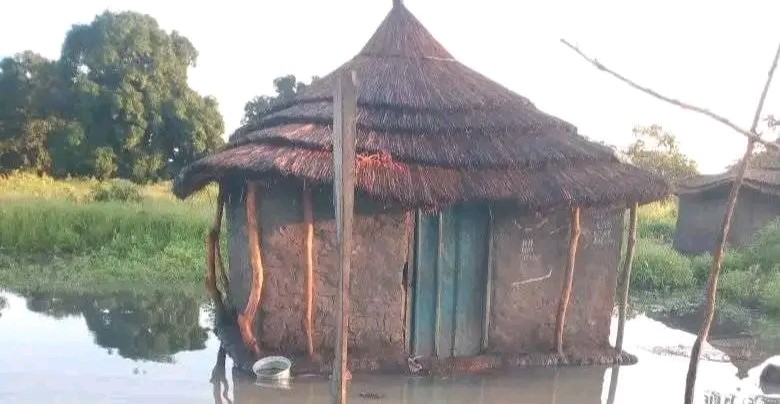Nearly 3,000 households in Mvolo County, Western Equatoria State, have been displaced by severe flooding after months of heavy rainfall, local officials said on Thursday.
County Relief and Rehabilitation Commission (RRC) Coordinator Wilson Dakada told Radio Tamazuj that 2,934 families had been affected since flooding began in August, submerging villages, destroying crops, and washing away shelters in Veri, Dari, Lessi, and other payams.
“More than 2,934 households have been affected, and others are yet to be registered because they are scattered,” Dakada said.
“People are facing hunger, poverty, and lack of shelter. No support has reached us from the government or humanitarian partners,” he added.
Dakada said the displaced families were sheltering in government buildings and open spaces due to a lack of tents and tarpaulins. He said access roads had been cut off by floodwaters, complicating relief efforts.
Flood victims said stagnant water had increased the risk of malaria, infections, and other diseases among children.
“Rain has destroyed all our houses. We are staying crowded in small rooms. Water is everywhere and children are sick with wounds on their feet and malaria. We need emergency support,” said Kezia Nedili, a displaced resident.
Community elder John Sadik also appealed for urgent aid, warning that communities could face hunger and disease if assistance delays.
“Our situation is tense. Crops like simsim and groundnuts are gone, houses have collapsed, children are sick, and malaria is everywhere. The RRC reported the situation, but no support has come yet,” he said.
Despite the challenges, the local crisis management team said the community had launched self-help efforts.
Community mobilizer Sila Jackson Aparu said youths and elders had contributed to buy 1,000 plastic sheets and 500 mosquito nets, registering more than 500 affected households for support in Veri.
“We are trying our best as a community, but we lack transport, resources, and food. People are hungry and living in poverty,” he said.
Attempts to reach state government officials could not immediately be reached for comment.




